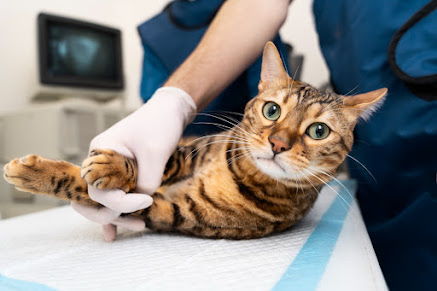How to Prevent Dog Diarrhea: A Guide for Pet Owners
Dog diarrhea can be a distressing and messy problem for both pet owners and their furry companions. It is a common condition that can be caused by various factors, ranging from dietary indiscretions to more serious health issues. Understanding the causes, implementing appropriate treatment, and taking preventive measures can help maintain your dog's digestive health and overall well-being. In this article, we will delve into the causes, treatment options, and preventive measures for dog diarrhea.
Causes of Dog Diarrhea:
- Dietary Indiscretions: Dogs are notorious for eating things they shouldn't. Consuming spoiled food, garbage, table scraps, or unfamiliar substances can upset their stomachs, leading to diarrhea.
- Sudden Diet Changes: Abrupt changes in a dog's diet, such as switching to a new brand or introducing new foods too quickly, can cause gastrointestinal upset and diarrhea.
- Food Allergies or Intolerances: Some dogs may have sensitivities or allergies to certain ingredients in their food, such as grains, dairy, or specific proteins, leading to diarrhea.
- Bacterial or Viral Infections: Infections caused by bacteria (e.g., Salmonella, E. coli) or viruses (e.g., parvovirus, distemper) can result in diarrhea.
- Parasites: Intestinal parasites, such as roundworms, hookworms, or giardia, can cause diarrhea in dogs.
- Medications and Toxins: Certain medications, such as antibiotics, or exposure to toxins, including household chemicals or poisonous plants, can irritate the digestive system and lead to diarrhea.
- Stress and Anxiety: Dogs experiencing stress or anxiety, such as during travel or changes in their environment, may develop diarrhea as a result.
Treatment Options for Dog Diarrhea:
- Water and Fluid Intake: Diarrhea can lead to dehydration, so it is crucial to provide your dog with access to clean water at all times. Offer small, frequent amounts to prevent overwhelming their stomach.
- Dietary Management: For mild cases of diarrhea, temporary fasting (12-24 hours) may allow the digestive system to settle. After the fasting period, a bland diet consisting of boiled chicken and rice can be gradually introduced to ease digestion.
- Probiotics: Probiotic supplements can help restore the balance of beneficial bacteria in the gut, aiding in the recovery process. Consult your veterinarian for appropriate probiotic options and dosage.
- Medications: In cases of severe or persistent diarrhea, your veterinarian may prescribe medications such as antibiotics, antiparasitics, or anti-inflammatory drugs to address the underlying cause.
- Veterinary Consultation: If your dog's diarrhea is severe, accompanied by other concerning symptoms, or persists for more than 24-48 hours, it is essential to consult a veterinarian. They can diagnose the underlying cause and provide appropriate treatment.
Preventive Measures for Dog Diarrhea:
- Proper Nutrition: Feed your dog a balanced and high-quality diet that suits their specific nutritional needs. Avoid sudden diet changes and carefully introduce new foods to prevent digestive upsets.
- Regular Veterinary Check-ups: Regular veterinary visits can help detect and address potential health issues before they escalate into more severe conditions.
- Hygiene and Cleanliness: Ensure your dog's living environment is clean and free from potentially harmful substances. Properly dispose of waste and keep garbage cans securely closed.
- Parasite Control: Follow your veterinarian's recommendations for parasite prevention and control, including regular deworming and flea/tick treatments.
- Stress Management: Minimize stressful situations for your dog, and provide them with a secure and comfortable environment. Gradual exposure to new experiences and positive reinforcement can help alleviate anxiety.
- Exercise and Mental Stimulation: Regular exercise and mental stimulation contribute to your dog's overall well-being and help maintain a healthy digestive system.
Conclusion: Dog diarrhea can be caused by various factors, ranging from minor dietary indiscretions to more serious underlying health conditions. Understanding the causes, implementing appropriate treatment options, and taking preventive measures are key to maintaining your dog's digestive health. By providing a balanced diet, maintaining good hygiene, and promptly addressing any signs of illness, you can help prevent and manage episodes of dog diarrhea, ensuring a happy and healthy life for your beloved pet. Remember, consulting with a veterinarian is always advisable for proper diagnosis and treatment of any digestive issues your dog may experience.






